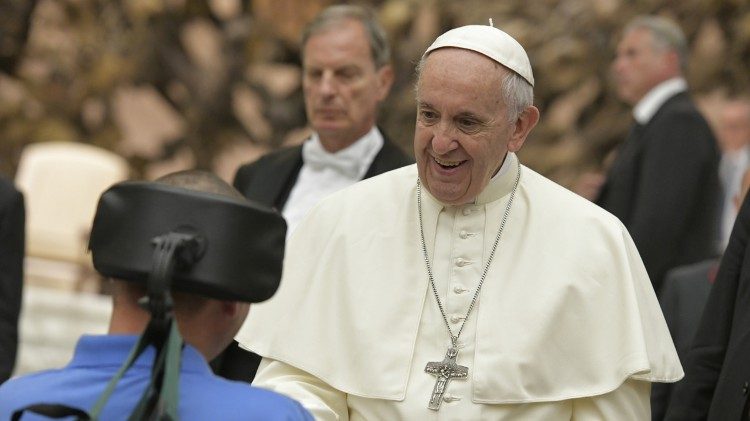Cardinal Arizmendi: Not all rights are rights
Treat others as you want to be treated

Cardinal Felipe Arizmendi, bishop emeritus of San Cristóbal de Las Casas and head of the Doctrine of Faith at the Mexican Episcopal Conference (CEM), offers readers of Exaudi his weekly article entitled “Not all rights are rights”.
***
LOOK
Roadblocks and street demonstrations are frequent, to demand a right that is said to be not respected; as farmers who demand that they be paid what is owed for their expropriated lands; as workers who urge that they be given what is fair for their work; as citizens who insist that what is considered a right be respected; as students who repeat over and over again that the truth of the violence they have suffered be clarified. And so many cases in which blockades and demonstrations are used as a method of struggle to demand that justice be done.
In most cases, this is exactly what is being asked for, and those affected say that they have no other option than to block streets and highways. However, it is also common for those blocking the streets and highways to not take into account the rights of other citizens, which are protected not only by fraternal charity, but also by our laws. For example, our Federal Constitution establishes in Article 6: Right to demonstrate limited when it attacks the rights of third parties or provokes a crime. In Article 11: Right to free movement without the need for safe-conducts or similar requirements. The Law on General Communication Routes, in Article 533, prescribes: Three months to seven years in prison for anyone who interrupts vehicular traffic and the operation of the toll service. For its part, Article 167 of the Federal Penal Code imposes one to five years in prison and a fine of one hundred to ten thousand days, among other cases. III: To anyone who, in order to stop vehicles on a public road, places an obstacle on a public road. This is what our laws establish, which the authorities promise to comply with, but which they do not execute because they say that they are not repressive as in other six-year terms… And they leave the community defenseless, with all the disasters that this causes to those who have nothing to do with it and who are totally innocent. They should attend to the protesters quickly and offer them solutions or alternatives, but urge them to clear the roads. They do not want to repress those who are causing serious damage, leaving those affected defenseless. It is the same thing that happens with organized crime groups, which act with impunity.
There are women and organizations that tooth and nail defend their right to do with their body what they freely want and, for this reason, they demand euthanasia and abortion. A person who believes in God knows that they are not the owner of their body, but that it is a gift that they have received, and they must take care of it to the point of the impossible. But those who do not have Christian faith feel like gods, demanding whatever they want, without any consideration for other rights, such as the right of the newborn to live and not be killed.
DISCERN
The Word of God is very clear: love God and love your neighbor. Do not do to anyone what you do not want done to you. Treat others as you would like to be treated. If someone says that he loves God and does not love his neighbor, he is a liar, a murderer.
The Declaration of the Dicastery for the Doctrine of the Faith, in Dignitas Infinita on the dignity of the human person, says: The concept of human dignity is sometimes abused to justify an arbitrary multiplication of new rights, many of which are often contrary to those originally defined and often contradict the fundamental right to life, as if the ability to express and realize every individual preference or subjective desire had to be guaranteed. Dignity is thus identified with an isolated and individualistic freedom, which seeks to impose, as “rights”, guaranteed and financed by the community, certain desires and preferences that are subjective. But human dignity cannot be based on merely individual standards nor identified solely with the psychophysical well-being of the individual. On the contrary, the defence of the dignity of the human being is based on the constitutive demands of human nature, which depend neither on individual arbitrariness nor on social recognition. The duties that derive from the recognition of the dignity of the other and the corresponding rights that derive from it therefore have a concrete and objective content, based on common human nature. Without this objective reference, the concept of dignity is subject in fact to the most diverse arbitrariness, as well as to the interests of power (25). “The dignity of the human being also includes the capacity, inherent to human nature itself, to assume obligations towards others” (27).
ACT
Demand, above all from the authorities, what is truly and justly yours, but do not do so in a violent manner, destroying everything in your path, but rather taking into account the rights of others. Treat others as you want to be treated.
Related

Francis. The Human and Religious Imprint of a Papacy
Isabel Orellana
24 April, 2025
5 min

Cardinal Felipe Arizmendi: With the Risen Christ, There Is Hope
Felipe Arizmendi
24 April, 2025
6 min

You Didn’t Give Up
Exaudi Staff
23 April, 2025
2 min

Sing, pray, give thanks
Mar Dorrio
23 April, 2025
2 min
 (EN)
(EN)
 (ES)
(ES)
 (IT)
(IT)

